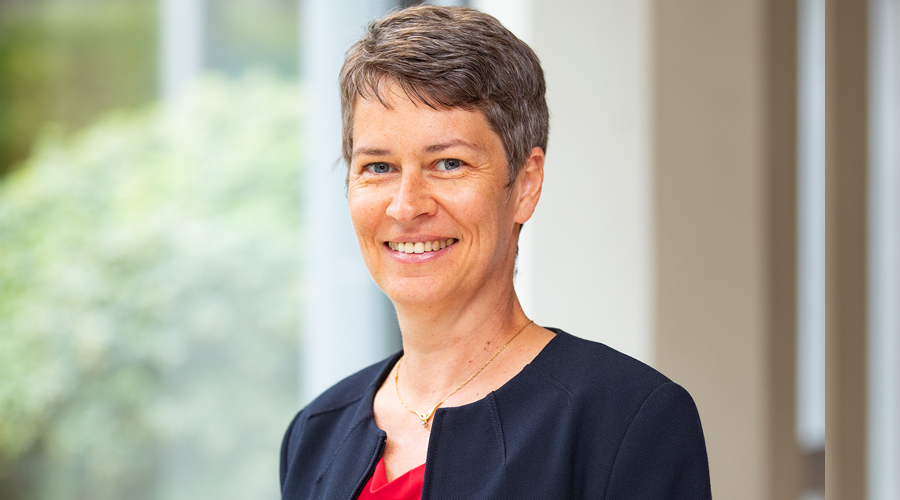The cover story on women in research in the magazine of the Hannover Medical School (MHH Info) naturally includes RESIST researchers. Prof. Routier – “The polyglot biochemist” – is portrayed as representative of the RESIST female scientists:
“Getting a good position in academia is difficult for all researchers, not only in Germany,” says Prof. Dr. Françoise Routier, group leader at the MHH Institute of Clinical Biochemistry. “You have to carry out excellent research, be lucky, get political support and work a lot – without the salary outweighing the amount of work.” This is likely why many young people would rather go into the private sector these days. “For women, an academic career is possibly even a bit more difficult than for men. I have seen many talented and ambitious women scientists that gave up their dream of an academic career after their PhD or postdoc.,” the biochemist reports.
Prof. Routier obtained her PhD from the University of Lille, France, and was then postdoctoral researcher at University College London in England, the University of Dundee in Scotland and Utrecht University in the Netherlands, where she was awarded a Marie Curie Fellowship by the European Union. In 2001, she moved to Germany and the MHH together with her husband and her one-year-old daughter. From 2003 to 2010, she held a junior professorship and since 2011, she has held an assistant professorship. However, obtaining a permanent position has required a lot of patience.
“Women often put family at the centre of their lives. So they have to work extremely efficiently in the time available for their research,” says the mother of two children. With her team, she is looking at the biosynthesis of carbohydrates building the cell wall and biofilm of pathogenic fungi to define their roles and identify potential drug targets. Prof. Routier’s research also aim to develop drugs against fungi, in particular against the deadly fungus Aspergillus fumigatus that affect people with a poor immune system. She is pursuing this goal within the cluster of excellence RESIST.
Women in research – many things have already improved, says Prof. Routier. “Gerty Cori was the first woman to receive the Nobel Prize for Physiology/Medicine in 1947, and only then did she receive a professorship,” she reports with a slightly ironic smile. There are good measures to promote the careers of women in research – The controversial women´s quota is only a mean to correct the underrepresentation of women in positions of power due to past (and present) discrimination. I am looking forward to the time when they will no longer be necessary.”
Here you can read the article in MHH Info, page 9 (in German).

